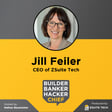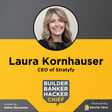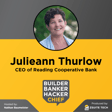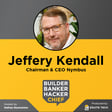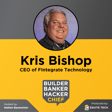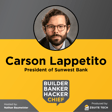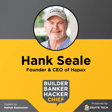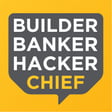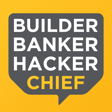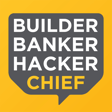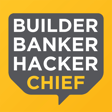
Kim Snyder – Balancing love with high standards, hanging out your shingle, and learning to communicate | Episode 18
Welcome to episode eighteen of Builder, Banker, Hacker, Chief! Joining me today is Kim Snyder, Founder and CEO of KlariVis.
On this show, I’m unpacking the stories, decisions, and influences that make people successful leaders.
Kim Snyder fell out of banking into founding a fintech startup right as the COVID pandemic struck the globe. Luckily, her upbringing as a Virginia farm girl gave her the work ethic and determination to chart a path through the chaos. Her team members are hand-picked for their unique abilities to push through hardship and deliver results for clients.
My name is Nathan Baumeister; I am the Co-founder and CEO of ZSuite Tech and the host of this podcast.
Both of Kim’s parents worked full-time to support her and her two older brothers. Kim’s mother also went to school part-time. This imbued her with a deep conviction that she could accomplish anything she wanted to.
After completing her accounting degree at James Madison University, she went to work for KPMG and eventually become the Chief Financial Officer of Valley Bank in Roanoke, VA, near where she grew up.
When Valley Bank was sold, and Kim’s position eliminated, along with many of her team-mates, she decided to launch a consulting business.
It wasn’t long before the seed of a product idea sprouted in her mind. A seed that had been planted back her days at Valley Bank.
Along with a few of her trusted colleagues, Kim launched KlariVis to help banks and credit unions transform their data into meaningful insights. That was in 2019, a scant year before the COVID pandemic threw the global economy into chaos and many startups failed to survive.
But Kim Snyder and her team forged their way through and have grown KlariVis into one of INC’s 5000 fastest growing companies.
Although Kim may not have unlocked the secret to getting in extra time at the gym and running a successful startup, her insights on leadership and building a motivated team serve as a far more lasting inspiration to us all. I hope you enjoy my conversation with Kim Snyder.
Resources:
Kim’s recommendations:
Books By Kristin Hannah:
Connect:
